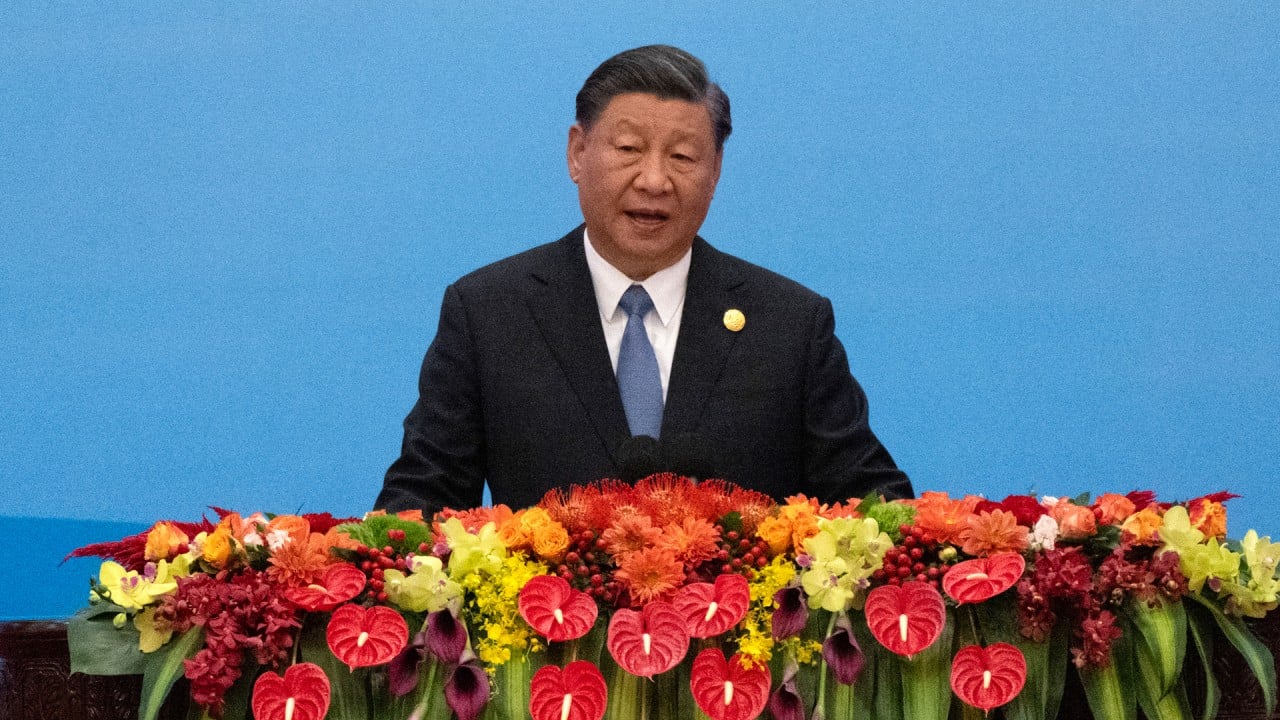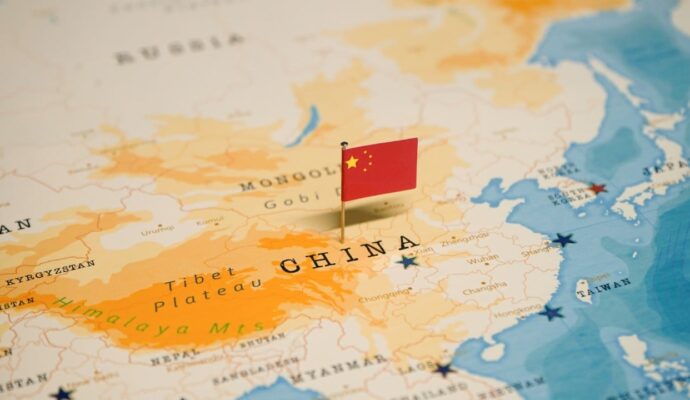Despite cascading geopolitical unrest throwing global development prospects into doubt, President Xi Jinping pledged on Wednesday to extend the global infrastructure network under his Belt and Road Initiative, and Russian president Vladimir Putin vowed to strengthen the initiative’s integration with his own plans for Eurasia.
Russia, which has long held considerable influence in the area, has been building a range of projects complementing China’s initiative and sees the belt and road strategy as aligned with its vision for Eurasian partnership, Putin said after Xi’s speech.
The two leaders were speaking to representatives from 140 countries at a gathering marking the 10th anniversary of the belt and road plan, at a time of great global uncertainty, with the US-China rivalry intensifying, the war in Ukraine continuing and the crisis in Gaza worsening at a rapid pace.
In response, Putin called the belt and road plan a “success”, listing a number of projects that were initiated by the Eurasian Economic Union, and emphasising how the economic union of several post-Soviet states and belt and road scheme complement each other.
Among them, the West Siberian Railway and the north-south corridor connect the Baltic Sea with the Persian Gulf and the Indian Ocean.
Putin invited interested states to directly participate in the development of the Northern Sea Route, the shortest shipping lane between East Asia and Europe.
Russia is not just inviting its partners to actively use its transit potential
Running from Murmansk on the Barents Sea to the Bering Strait between Siberia and Alaska, the route has been gaining prominence due to the climate-induced shrinking of ice cover.
“Russia is not just inviting its partners to actively use its transit potential. We are ready to provide reliable ice wiring, communications and supplies,” he said.
“Starting next year, navigation for ice-class cargo ships along the entire Northern Sea Route will become year-round.”
He also said that the integration agenda is an integral part of Russia’s national development strategy and “the strengthening of our economic, technological and financial sovereignty, modernisation and expansion of infrastructure”.
Hong Kong can foster cultural exchanges under belt and road plan: John Lee
Hong Kong can foster cultural exchanges under belt and road plan: John Lee
Xi also said China will use more new energy and eco-friendly technologies in the process, in accordance with Beijing’s plan to transform its growth along greener lines.
Zhao Xijun, a professor of finance at Renmin University, said the belt and road scheme has won support from Russia as it deals with sanctions from the West over the Ukraine war, as it “provides Russia with a channel for international cooperation”.
“For both China and Russia, it expands communication beyond their bilateral cooperation,” he said.
Xu Mingqi, a researcher from the Shanghai branch of the China Centre for International Economic Exchanges, said Russia used to be cautious about China building infrastructure in Eurasia due to China’s advantages in both technology and capital.
“But as it relies on Asia more and more with the [changing] geopolitical environment, its demand in infrastructure toward the East is growing, and its concern about China is reducing,” he said.
Cooperation in the Northern Sea Route is of significance to both countries, as it would link China with Europe in the event of a war in the South China Sea or the Indian Ocean, and Russia lacks the ability to develop the route single-handed.
First China-Russia railway bridge to boost trade, slash rail-delivery times
First China-Russia railway bridge to boost trade, slash rail-delivery times
“In this sense they’re highly complementary to each other,” he said.
However, Shi Yinhong, a professor of international affairs at Beijing’s Renmin University, expected progress would be “very limited” thanks to China’s economic slowdown and the challenges Russia is facing.
“China will keep pushing, but will definitely be more cautious and pragmatic based on its decreased capacity in overseas investment and a slowed economy,” he said.
“For Russia, it’s not just about economic woes, but also the war, and the vigilance of central Asian countries.”


